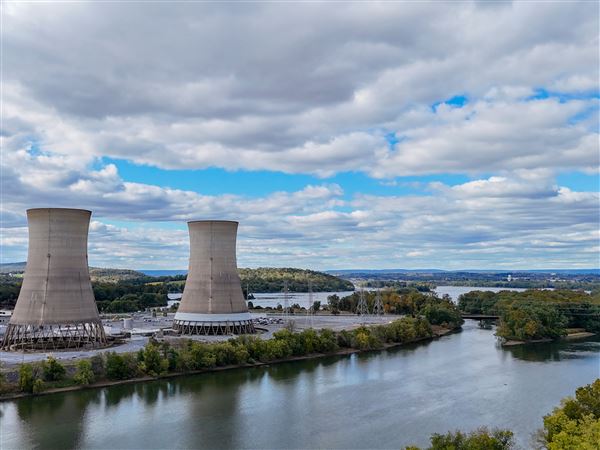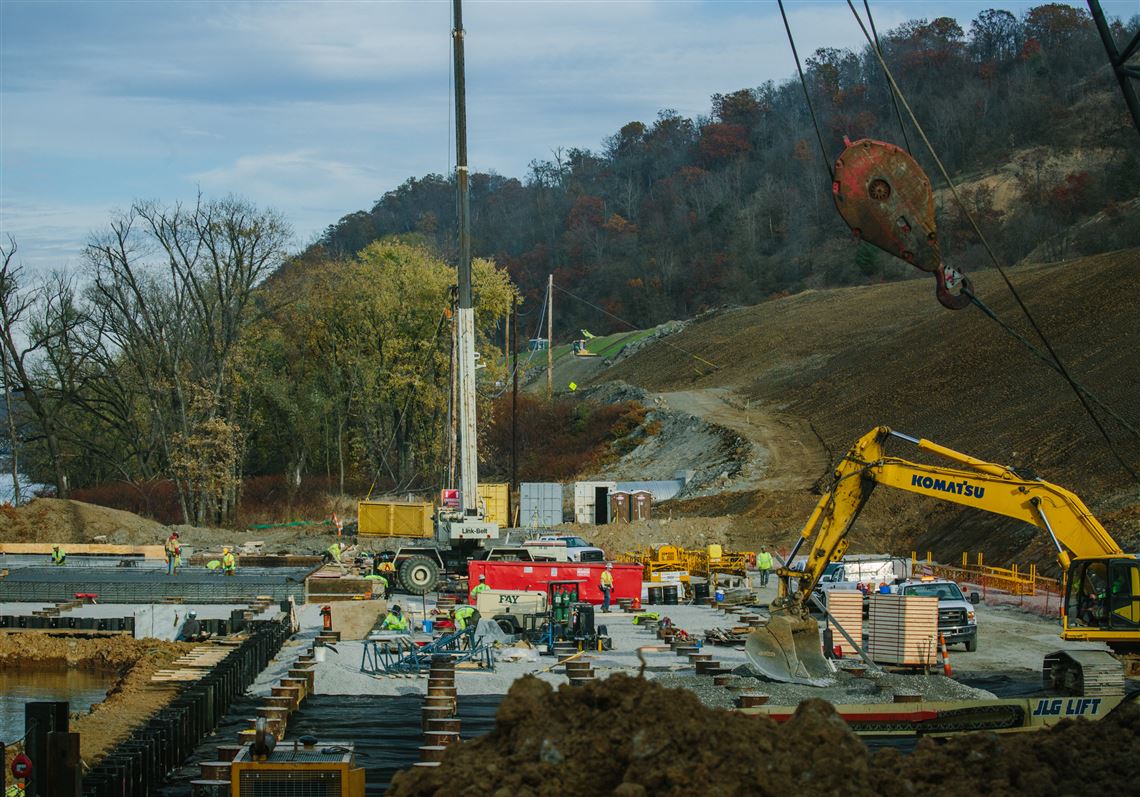Shell Chemical Appalachia’s water permit for its petrochemical complex along the Ohio River has revived a concern from the days of early shale development in Pennsylvania.
Environmental advocates are objecting to what they say is a skirting of regulations put in place in 2010 to limit the discharge of total dissolved solids into waterways, although the company and state regulators say Shell is working within the existing legal framework.
By building its cracker plant and several other chemical units under a permit granted to a former zinc smelter run by Horsehead Corp., Shell would be free from limits on such pollutants.
The issue dates to a rule placed on discharges from new and expanded facilities that the state Department of Environmental Protection put in place in 2010, following evidence of high total dissolved solids in the Monongahela River in the latter part of the last decade. That was before shale operators started recycling most of their water from fracking and would instead haul it to public treatment plants, which discharge into the river.
When Shell bought the Horsehead property in June 2015, the DEP agreed to transfer the wastewater discharge permit from Horsehead to Shell. That way, Shell wouldn’t face delays in its construction schedule while waiting for a new permit to be approved.
The DEP also knew that Shell wanted to be grandfathered into the total dissolved solids rule, which allowed existing facilities to continue discharging at their pre-2010 levels.
Because Shell promised to discharge less of them than Horsehead had been putting into the river, the state regulators said, the net effect on the Ohio River would not be harmful.
“That’s not really the point,” said Lisa Hallowell, an attorney with the Environmental Integrity Project, a nonprofit advocacy organization. “The point of the regulation was really to lower the overall load of TDS in rivers.”
She said it’s disingenuous of Shell to be operating a completely different facility but ask to be considered an existing source of pollution, especially since the company — the fourth largest in the world by revenue — has the means to comply with the law.
“They’re not operating anything that used to be there before, because there’s just nothing there,” she said. “This is a brand new everything.”
‘If we don’t comply, we shut down’
It’s a refrain that was echoed dozens of time during a public hearing on changes that Shell requested be made to the wastewater discharge permit, hosted by the DEP at Central Valley High School in Monaca last week.
Speakers talked about how the agency had allowed Horsehead to violate its discharge permits and continue operating, and they asked what would happen if the cracker plant didn’t adhere to its permit restrictions.
Would it be shut down? they wondered.
DEP representatives explained that there’s an enforcement process in place, that there would be penalties and arrangements made to force the plant to come into compliance.
Shell’s site general manager, Jeff Krafve, wanted to be more direct.
“We will not discharge above that,” he said. “If we don’t comply, we shut down.”
Still, the Horsehead example loomed over the discussion. The water discharge permit was issued to Horsehead in 1987, according to DEP’s data. It was renewed once, in 2001, and was set to expire in 2006.
Horsehead submitted its renewal application before the deadline in 2006. The DEP never granted it, in part because the company had a number of unresolved permit violations.
Since Horsehead had filed for a renewal on time, it could continue to operate under the terms of its 2001 permit. And it did until it closed its zinc smelter in 2014.
Within weeks of Shell’s decision to buy the Horsehead property in June 2015, the DEP issued the renewal application to Shell.
Michael Marr, a spokesperson for Shell, said the company and the DEP agreed to actions that would protect the Ohio River from pollution, including the installation of two interim treatment facilities, lined treatment ponds and storm water catch basins.
“Shell had to agree to take ownership and control and improve water quality of (Horsehead’s) outfalls,” he said. “As such, the transfer of the permit from the previous owner to the new owner was the logical and normal means to achieve this result.”
The renewed permit from 2015 was basically for the same activities as Horsehead had when it operated the site. The DEP hearing last week concerned an amendment that Shell filed to rework the permit for the operation of a petrochemical complex.
As for total dissolved solids, Shell’s documents state it could discharge as much as 91,000 pounds daily, which would still be more than a third lower than Horsehead’s load, Mr. Marr noted.
“There are several ways to eliminate TDS if required,” he said. “If the agency determines protection of the environment necessitates such a development, we would work with (the Pennsylvania) DEP to develop the most efficient solution.”
Anya Litvak: alitvak@post-gazette.com or 412-263-1455.
First Published: December 22, 2016, 5:01 a.m.

















